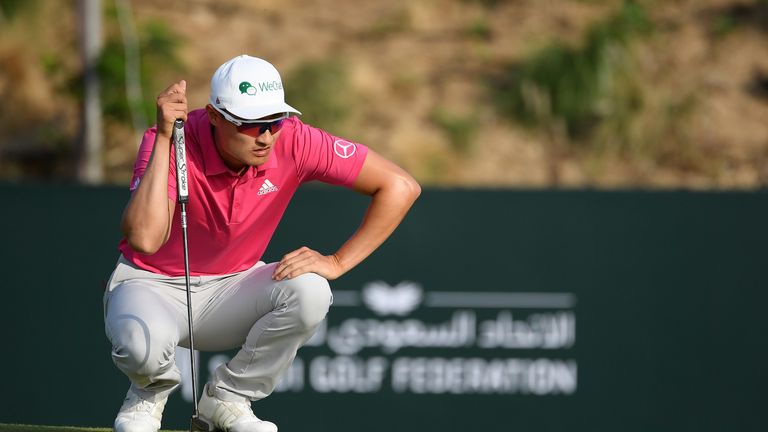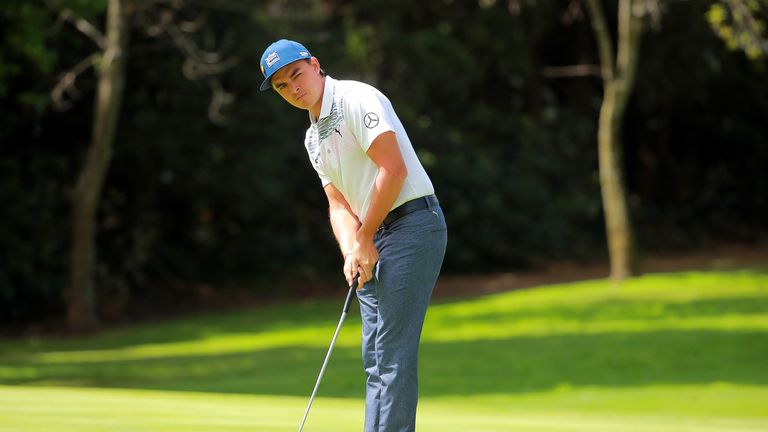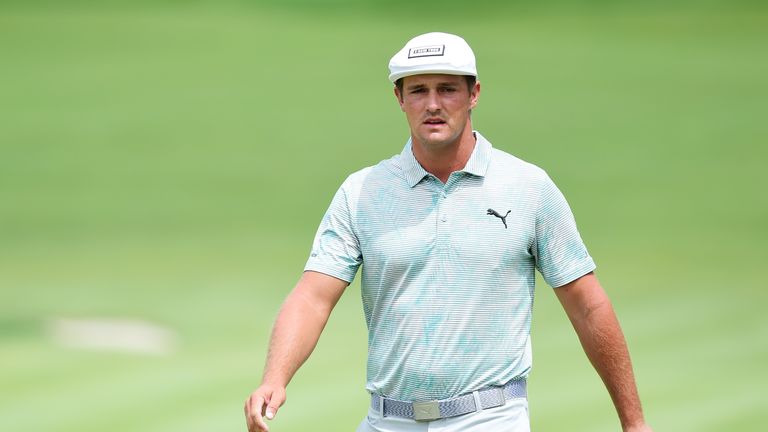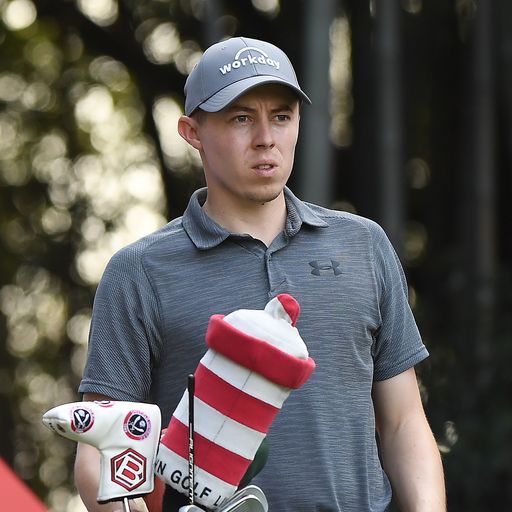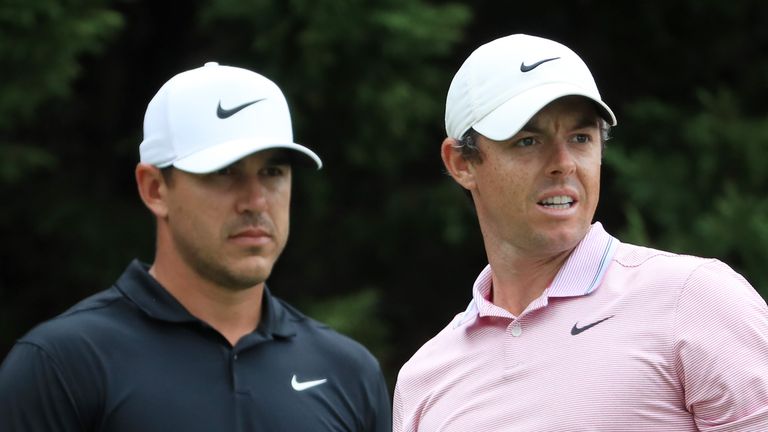Golf's new rules in 2019 were embraced, now it's time to crack down on slow play, says Ewen Murray
"Of all the new rules introduced, the one that was missing was tougher punishments for slow play."
Wednesday 1 January 2020 09:22, UK
Ewen Murray hails the multitude of golf's new rules in 2019 as a success, but now it's time for the authorities to get tougher on slow play ...
There was a lot of thought behind the new rules that came into effect at the start of 2019, and many of the regulations were four years in the making. One of the aims was to simplify many of the Rules of Golf, and I think the R&A and the USGA did a fairly good job with that.
Some caused controversy, including the knee-high drop - which I don't like but I fully understand the reason behind it. But the one I really didn't like was the new "penalty area" term. For me, penalty areas are for the likes of Pierre-Emerick Aubameyang and Harry Kane, and it's a term I often struggled to get out when live on air.
I think, in general, everybody embraced the new rules. There were always going to be a few teething troubles like was saw with the luckless Li Haotong in Dubai. He fell victim to the new regulations banning caddies from helping with alignment, but I felt he was hard done by on that final green.
Rickie Fowler was a high-profile victim of the new dropping rule, when he inadvertently dropped from shoulder height in Mexico and turned a five into a seven. Of course, some players adapted to the new rules faster than others, and you could argue that the younger golfers found it easier than many of the more established pros.
But, overall, the R&A and USGA will look back on the new rules as a success and a move in the right direction. Many of the new rules were brought in to help combat the scourge of slow play, but although the pace of play was slightly better on the European Tour, the same cannot be said for the PGA Tour.
Of all the new rules introduced, the one that was missing was tougher punishments for slow play. The guidelines are that players should be hitting within 40 or 45 seconds, but that's all they seem to be currently - guidelines.

Get the best prices and book a round at one of 1,700 courses across the UK & Ireland
I believe Li Haotong's penalty in Dubai was unjust and extremely harsh, particularly when we saw Bryson DeChambeau taking two minutes to hit a routine nine-iron from the middle of the fairway earlier in the tournament. It wasn't a difficult shot, so to take so long over that shot was ridiculous - even more so when he explained that the air density was different on that particular part of the course!
I think slow play is selfish, and it's unfair on the quicker players who want to play within the time guidelines and have to adjust their rhythm because of pedestrian playing partners. It should be the other way around. The occasional penalty is handed out when players get out of position, but with so many slow players on the course, that rarely happens.
The time to get firmer is long overdue, and the only way to deal with it is penalty shots. That will hurt more than a paltry fine.
Matt Fitzpatrick described slow play as "cheating", and I don't think that statement is too strong at all. Matt is a young lad and likes to get on with it. He gets his yardage, gauges the lie and the wind, pulls a club and off he goes.
If we want a level playing field for every professional tournament, no matter what Tour, then everyone should be playing at the same pace. Those that don't should get penalised.
One of the worst examples in 2019 was the Genesis Open on the outskirts of Los Angeles. Watching JB Holmes taking close to six hours for his final round was painstaking. He had no concept of "ready golf", and there were too many occasions when he was last to play, his glove was still in his pocket, and he had not started the process of preparing to hit his shot when it was his turn.
Let's be absolutely clear about this - it is not rocket science. When you look at the rules going forward, then golf's governing bodies need to make eradicating slow play their No 1 target. The big problem is that youngsters watching at home will see a leading professional taking their time over a shot or a putt, and they will model themselves on that.
All the global Tours should get together and stamp down on this problem sooner, rather than later. You get warned for the first infringement, after that it's a penalty shot, and if you do it again then the penalty should double. That's my solution for it, and I think it's the only way to improve the pace of play to an acceptable level.
Two of the quickest professionals in the game are Brooks Koepka and Rory McIlroy, and the fact they are ranked Nos 1 and 2 in the world is surely no coincidence. McIlroy said during the year that if pace of play rules were steadfastly enforced, it would "thin the herd", and it was hard to disagree with that.
It can be done, just look at how many players suddenly speed up if there's a likelihood that play will be suspended for fading light and they face a race against time to complete their rounds instead of having to return early the following morning.
Kevin Na is another who has often been accused of playing too slowly, but he managed to play the final 18 holes of the 2016 Tour Championship in less than two hours. And he literally ran between shots over the last few holes, and birdied the last four!
The longer you take over a shot, the more time there is for negative thoughts to creep in, but the biggest reason to crack down on slow players is the impact it has on the quicker pros.
There was an awful lot of thought that went into all the changes we saw last year, now it's time for the authorities to address the one that got away. All the new rules were improvements, in my opinion, and my one remaining gripe is slow play.
I just don't see any need for it at all.


